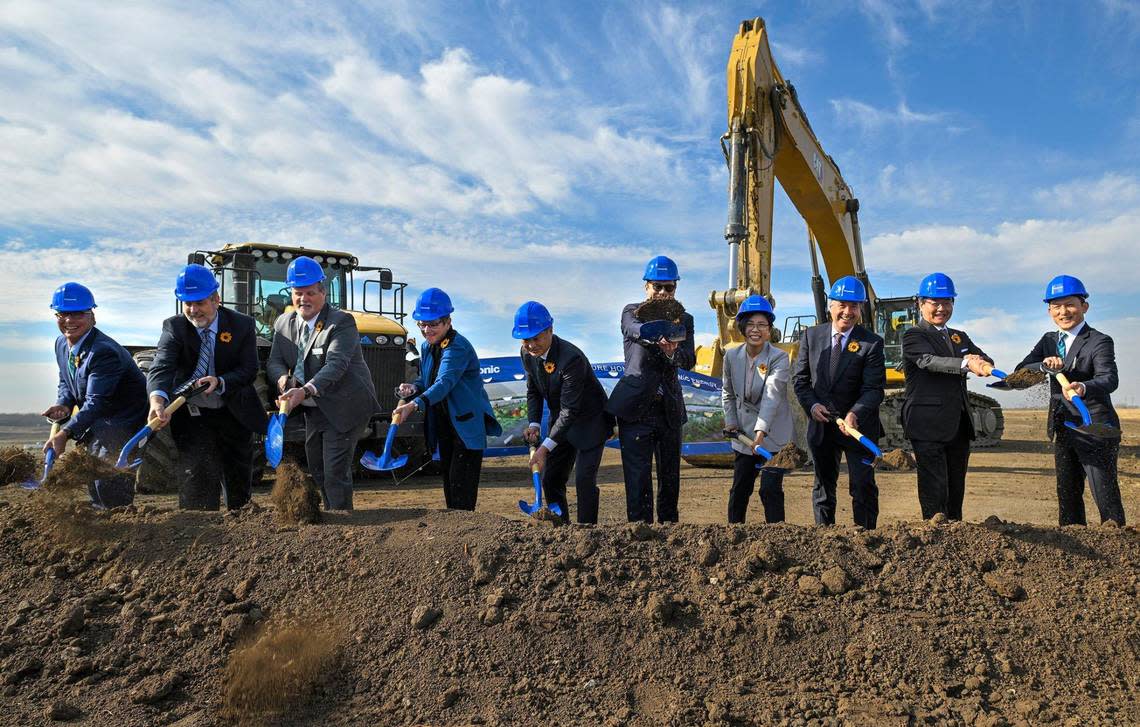Was ‘winning’ Panasonic battery plant over Oklahoma really a victory for Kansas? | Opinion

The Greek general Pyrrhus, after winning a battle against the Romans but losing many of his best officers and soldiers in it, is said to have lamented: “Another such victory and we shall be utterly ruined.”
Ever since then, those kinds of costly wins have been called a “Pyrrhic victory.”
Which brings us to the story of modern-day Kansas, and a Panasonic battery plant.
About a year ago, Gov. Laura Kelly and leaders of the state Legislature were heartily patting themselves and each other on the backs for cutting a deal to lure a Panasonic factory to make batteries for Tesla electric cars at the site of an abandoned Army munitions plant near De Soto.
Their storyline was that through an innovative process of top-secret government negotiation, we’d beaten Oklahoma in a high-stakes competition for the factory. (More about Oklahoma in a minute).
Kansas’ victory was accomplished through the passage of the APEX act. It allowed the governor and legislative leaders to give Panasonic an $829 million incentive package to land the battery plant, which will cost $4 billion overall and create 4,000 jobs.
Most of the lawmakers who passed the bill were kept in the dark, being told only that their vote would authorize big money for a big project.
Only a handful of lawmakers were let in on what would be built, where it would be built, how much it would cost and who would get the money. They were sworn to secrecy until the deal was announced amid great fanfare.
At the time, I was one of a very few in the state to publicly suggest that a battery factory was a less-than-impressive result for all the massive subsidies it would receive, and that secret deals involving hundreds of millions of public dollars, executed behind closed doors, may not be the best way for the state to do business.
I pretty much got hammered for that.
This online comment was pretty typical: “Funny someone that sits at a computer all day writing dribble for the least trusted profession in America has a problem with Kansas making something we are now reliant on that … up to this point … we have had to outsource to countries like China.”
Oklahoma Energy Today called me a “whining winner” in a headline.
Since then, Kansas’ total investment in the plant has risen from the original $829 million to about $1.2 billion.
That includes various local tax breaks, road improvements courtesy of the Kansas Department of Transportation, and gifting Panasonic the opulent Olathe office building that was the former headquarters of the Kansas Bioscience Authority.
The authority was a failed state eco-devo scheme started in 2004. The state invested $232 million to bankroll biotech startups and ended up selling off the agency’s portfolio for $14 million, after 12 years of misspending and dubious investments.
And now, the third shoe just dropped in the Panasonic deal.
A three-reporter team of The Kansas City Star reported Thursday that Panasonic will be eligible for billions in federal aid through provisions in last year’s federal Inflation Reduction Act.
Their story is based on research by the incentive watchdog group Good Jobs First, which is estimating that Panasonic could get another $6.8 billion from the feds.
Pending the completion of federal rulemaking, the total package could add up to approximately $8 billion in federal, state and local subsidies, to build a $4 billion plant.
Overall, that’s $2 million per job created.
And remember Oklahoma, the people we beat out for Panasonic?
Their state government is putting the finishing touches on a deal announced by their governor in April for another Panasonic battery plant.
It’s slated for Pryor, the Tulsa exurb that was the other finalist for the De Soto plant.
Their factory will be bigger than ours, a $5 billion project compared to our $4 billion one. And it appears they’ll be spending less in incentives than we did.
I think I know what General Pyrrhus would say.

